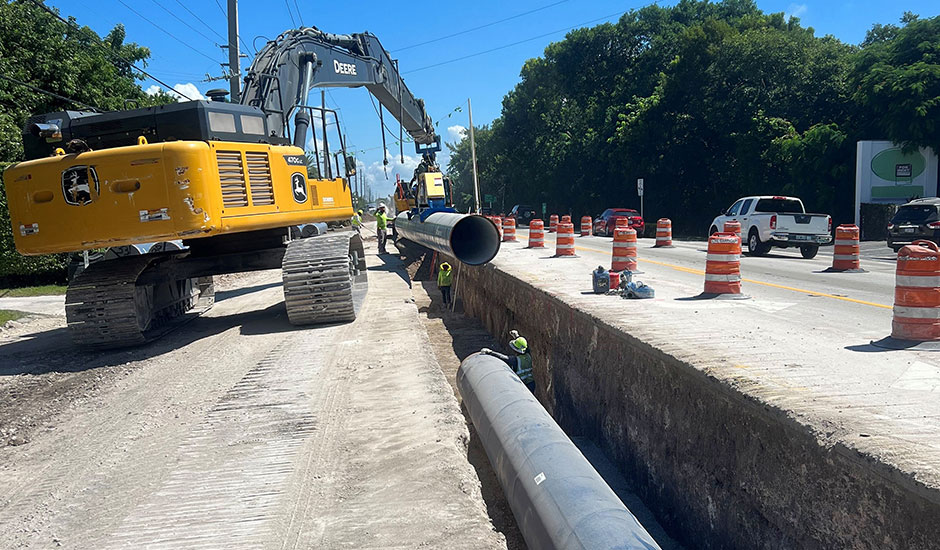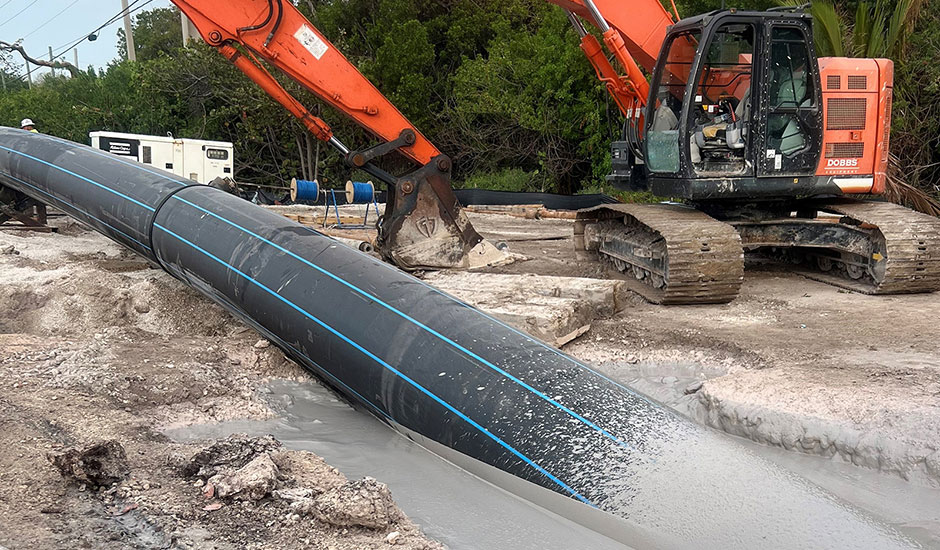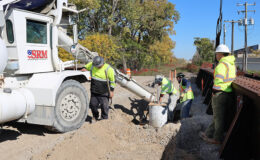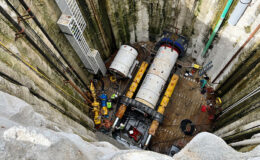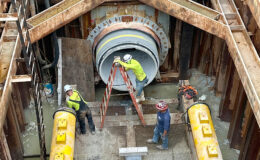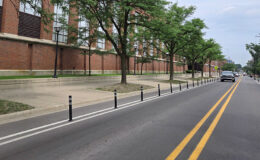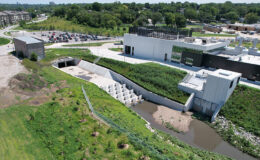Aggressive soils and subterranean tidal flows in the Florida Keys submerge and expose underground infrastructure to corrosive conditions that accelerate aging, leaks, breaks, and vulnerability to climate effects. The Florida Keys Aqueduct Authority (FKAA) has embarked on a long-term effort to replace water transmission main that runs along US-1 for the entire 130-mile chain of islands to strengthen the system’s resilience and reliability. Existing ductile iron pipe is being replaced with cathodically-protected steel pipe to resist early corrosion. Efforts began in Islamorada with a 5-mile transmission main replacement project on Upper Matecumbe Key that Wade Trim has provided design and construction management services for over the past 3 years.
Determining the transmission main’s optimal route through Islamorada was critical to navigate the unique challenges of the Keys. The route had to be constructable with minimal impacts on traffic flow. Ultimately, the transmission main was routed under the southbound lanes of US-1 to avoid areas congested with existing utilities and allow for shorter connections to existing infrastructure. The route also included underwater crossings of the Tea Table Key Relief Channel and the Whale Harbor Channel to tie together the new steel pipe segments. Horizontal directional drilling was used to install 42-inch HDPE pipe, providing redundancy at these vulnerable bridge crossings.
The project had to contend with supply chain conditions that made it difficult to obtain raw materials and parts, lock in prices during bidding, and develop accurate cost estimates. To expedite the project and avoid material delays, the FKAA team implemented an early owner-direct purchase program for the straight steel pipe sections and butterfly valves. Obtaining the valves was particularly difficult due to unforeseen supplier issues. Even with early procurement, a spacer piece had to be installed between pipe segments temporarily until the valves arrived, which enabled the contractor to continue with construction.
Since US-1 is the only roadway and evacuation route for the Keys, maintenance of traffic during construction was critical. A lane shift, diverting the northbound traffic onto the shoulder and the southbound traffic into the northbound lane, provided approximately 30 feet of roadway for contractor workspace and the required separation between the open trench activities and vehicular traffic. Avoiding an alternating traffic pattern, the contractor was able to work 24 hours a day to maximize installation efficiency.
Construction began in April 2023 and is estimated to be complete in July 2024, cutting the anticipated construction schedule in half and significantly reducing impacts on businesses and residents. With a total cost of $42 million, $35 million has been funded by grants and $7 million through low-interest federal Water Infrastructure Finance and Innovation Act loans. Wade Trim is also designing the next segment, the 1.5-mile Windley Key Water Transmission Main Replacement Project, that is scheduled for completion in 2025.

